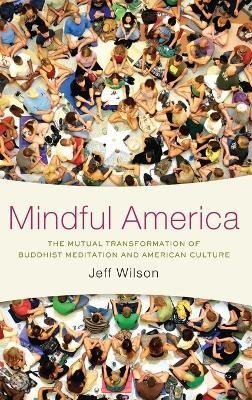Mindful America(English, Hardcover, Wilson Jeff)
Quick Overview
Product Price Comparison
Over the past three decades, ''mindfulness'' has evolved from an Asian religious technique largely unknown in the west to a popular cure-all and a money-making industry. America has seen a rise in advocacy for and practice of mindful eating, mindful sex, mindful parenting, mindfulness at work, mindful sports, mindful divorce lawyers, mindfulness-based stress relief, and mindfulness-based addiction recovery. Mindfulness is being taught in the public schools, the hospitals, and now even in the military. In the first comprehensive study of this phenomenon, Jeff Wilson explores how mindfulness came to be applied to so many non-traditional concerns, how it has been reconceptualized, and where it fits in American Buddhism while increasingly influencing and being appropriated by non-Buddhists. Wilson demonstrates that the concept of mindfulness in America is a perfect example of how Buddhism enters new cultures and becomes domesticated: in each case, the new culture takes from Buddhism what they believe will relieve their specific distresses and concerns, in the process producing new Buddhisms adapted to their needs. In Japan, where concerns were dangerous ghosts and capricious elemental deities, Buddhism became funerary and exorcistic; in modern America the concerns are secular and therapeutic, with an orientation toward personal fulfillment and lifestyle management, but the underlying pattern is the same. Drawing on case studies focused on mindful eating, sexual intimacy, addiction, work, and parenting, Wilson shows how Buddhism shed its counter-cultural quality and was assimilated into common American lifestyles. He also examines the economics of the mindfulness movement, as embodied by services and products such as smartphone applications. Mindful America provides critical insight into the origins of mindfulness meditation practices in Asian Buddhist history, and shows how mindfulness meditation came to be popular (especially among the laity) in American Buddhism.


